The Túngara Frog
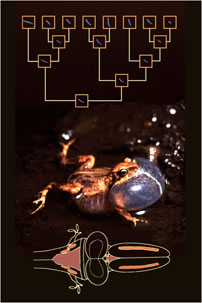
Holly Menino's book, Calls Beyond Our Hearing (2012, St. Martin's Press, NY) has a chapter dedicated to our tungara frog research. You can access that chapter from here to get a glimpse of what we do in Panama.
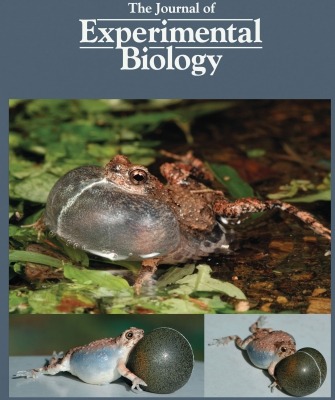 Studies with Dr. Ryan Taylor (Salisbury University) and colleagues utilize robotic frogs to gain insights into the imorptance of multimodal communication in sexual selection. Go to the multimedia page to see a video clip of the robofrogs in action.
Studies with Dr. Ryan Taylor (Salisbury University) and colleagues utilize robotic frogs to gain insights into the imorptance of multimodal communication in sexual selection. Go to the multimedia page to see a video clip of the robofrogs in action.
Studies with Dr. Ham Farris (LSU Medical School) investigate various aspects of psychoacoustics in tungara frogs with emphasis on perceptual binding of the whine and the chuck, and on attempts to understand the general challenges of auditory scene analysis in a noisy environment.
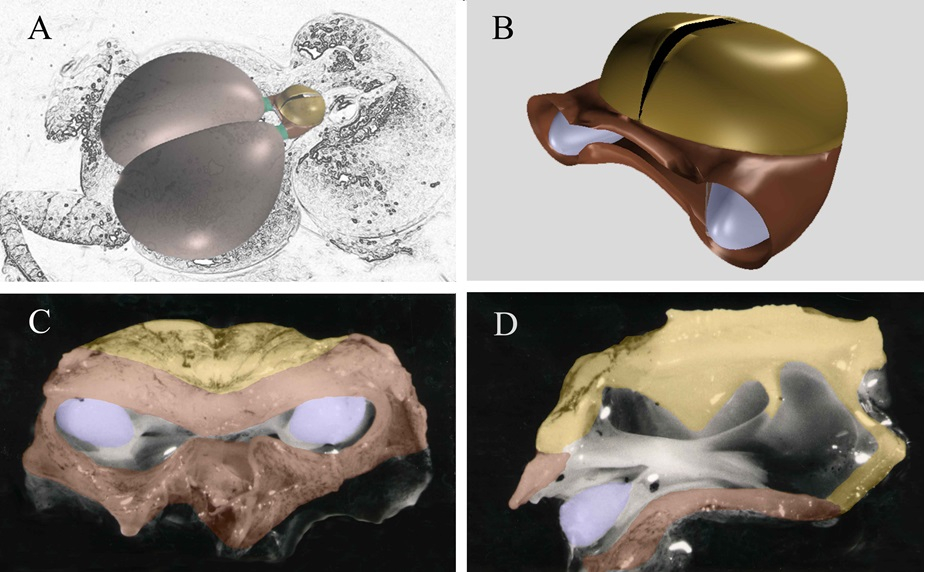 Together with Dr. Nikki Kime (Edgewood College) and Dr. Preston Wilson (Mechnical Engineering, Univ. Texas) we are developing analytical models of the anuran sound production system. Dr. Heidi Smith is exploring the molecular genetics of larynx development and the mophology of larynx ontogeny in a collaboration with Dr. John Wallingford (Dept. of Molecular Sciences, Univ. Texas).
Together with Dr. Nikki Kime (Edgewood College) and Dr. Preston Wilson (Mechnical Engineering, Univ. Texas) we are developing analytical models of the anuran sound production system. Dr. Heidi Smith is exploring the molecular genetics of larynx development and the mophology of larynx ontogeny in a collaboration with Dr. John Wallingford (Dept. of Molecular Sciences, Univ. Texas).
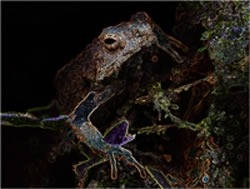
Multimedia. Videos & calls of this research for download are posted on Multimedia page.
Undergrad Researchers. If you are a UT undergrad looking for lab experience, click here.
Interns and Assistants. Each summer (June to August inclusive) we hire assistants. Click here if you are interested.
(photo by Alex Baugh)
Swordtails
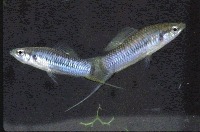
Factors Influencing Phenotypic and Genotypic Polymorphism in Male Body Size in the Swordtails (Xiphophorus: Poeciliidae: Pisces): In swordtails variation at the P allele controls most of the variation in body size in most species. A variety of studies are addressing behavioral correlates of the P allele, the maintenance of its variation in nature, and the historical patterns of preferences in females and P alleles in males in the clade of northern swordtails.
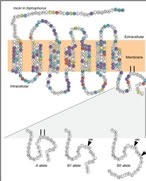 We recently identified the P gene as the melanocortin 4 receptor, and showed that: (i) there is copy number variation in mc4r, (ii) Y-linked alleles result in non-functional receptors, and (iii) there is a correlation between male size and copy number of Y-linked alleles (Lampert et al. 2010). Current studies with Professor Manfred Schartl (Wurzburg Univ, Germany), Dr. Hans Hoffman, and Dr. Alex Jordan (Max Planck Institute) are exploring the molecular genetics, neurobiology and behavioral evolution of this system.
We recently identified the P gene as the melanocortin 4 receptor, and showed that: (i) there is copy number variation in mc4r, (ii) Y-linked alleles result in non-functional receptors, and (iii) there is a correlation between male size and copy number of Y-linked alleles (Lampert et al. 2010). Current studies with Professor Manfred Schartl (Wurzburg Univ, Germany), Dr. Hans Hoffman, and Dr. Alex Jordan (Max Planck Institute) are exploring the molecular genetics, neurobiology and behavioral evolution of this system.
The Amazon Molly
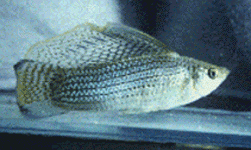
Behavioral Factors in the Maintenance of an Asexual-Sexual Species Complex of Mollies: The Amazon molly, Poecilia formosa, is an all-female species that reproduces clonally, but females must mate with males of the sexual species, P. latipinna, to acquire sperm necessary to trigger embryogenesis. The main question of our research asks, why would male sailfins mate with female Amazons if there is no reproductive benefit to the male? Click here for one of the answers. Much of this work is in collaboration with Dr. Ingo Schlupp of the University of Oklahoma.
Frog-eating Bats
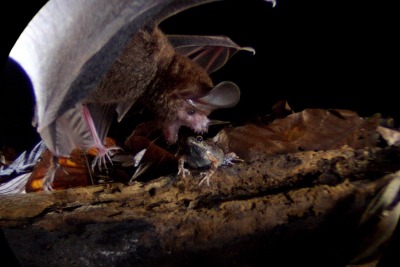
Trachops cirrhosus, the fringe-lipped or frog-eating bat, is an eavesdropping predator that locates anuran prey by their calls. Not only do these bats rapidly learn to associate particular cues with the palatability of their prey, they can do so by observing the behavior of other individuals. May Dixon, Claire Hemingway, and STRI Staff Scientist Dr. Rachel A. Page (a former lab member) are investigating the cognitive ecology of T.cirrhosus, including learning and memory, as well as predation on multiple types of prey, social behavior, and echolocation. Dr. Wouter Halfwerk (VU University of Amsterdam) is investigating multimodal foraging strategies in Trachops.
 Brandi Christiano is studying the diets of bats in the context of foraging decisions. See the delightful video made by Marina Weikel Ramirez, Brandi’s research assistant, on their research on bats in Panama.
Brandi Christiano is studying the diets of bats in the context of foraging decisions. See the delightful video made by Marina Weikel Ramirez, Brandi’s research assistant, on their research on bats in Panama.
Chytrid
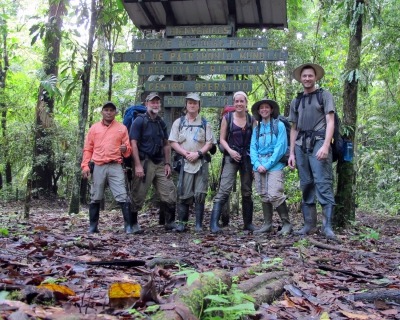 Sofia Rodriguez is studying the effect of the chytrid fungus (Bd) on the behavior and genetics of tungara frogs. As part of tracking the spread of chytrid she led expeditions into Darien Gap in summer 2014 and 2015. Click here for a video and more information.
Sofia Rodriguez is studying the effect of the chytrid fungus (Bd) on the behavior and genetics of tungara frogs. As part of tracking the spread of chytrid she led expeditions into Darien Gap in summer 2014 and 2015. Click here for a video and more information.
